Life
Sign up for our newsletter
We summarize the week's scientific breakthroughs every Thursday.
-
 Animals
AnimalsGazing deeply into your dog’s eyes unleashes chemical attraction
Dogs and people gazing into each other’s eyes give each other a bond-strengthening rush of oxytocin.
By Susan Milius -
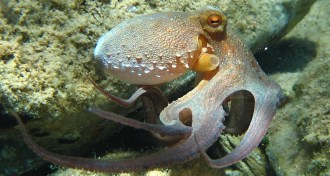 Life
LifeOctopuses move with uncoordinated arms
An octopus crawls unlike any other animal. Mimicking the cephalopod’s control over its movements may lead to more agile robots.
-
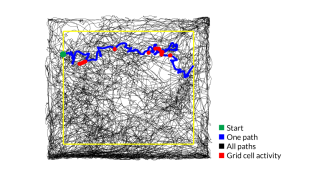 Neuroscience
NeuroscienceWhen brain’s GPS goes awry, barriers can reboot it
Brain’s internal map self-corrects when it hits a (literal) wall.
-
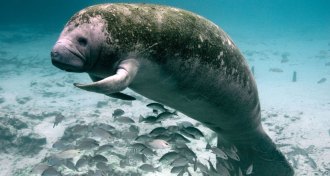 Animals
AnimalsHow many manatees live in Florida?
The most recent official count reports more than 6,000 manatees in Florida waters, but a new estimate may give a better picture of the population.
-
 Life
Life‘Geographic tongue’ creates unique topography
A condition called ‘geographic tongue’ makes mouth organ appear maplike.
-
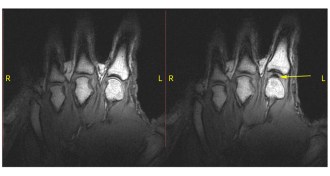 Life
LifeResearchers pull fingers to solve why knuckles crack
Knuckle cracking is the sound of a bubble forming in a joint, MRI images reveal.
-
 Health & Medicine
Health & MedicineSame mutations can show up in tumors, healthy tissues
Analyzing samples of healthy and tumor tissues could pinpoint which mutations are driving cancer and help develop better-targeted treatments.
By Nathan Seppa -
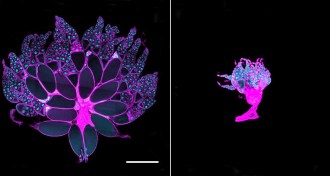 Health & Medicine
Health & MedicineWhy cancer patients waste away
A tumor-produced protein that interferes with insulin causes wasting in fruit flies with cancer.
-
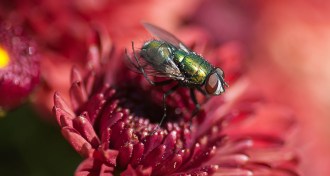 Animals
AnimalsShimmer and shine may help prey sabotage predators’ aim
Iridescent prey was more difficult to strike in a video game for birds.
By Susan Milius -
 Neuroscience
NeuroscienceNicotine exposure escalates rats’ desire for alcohol
Rats drink more alcohol after they’ve been hooked on nicotine.
-
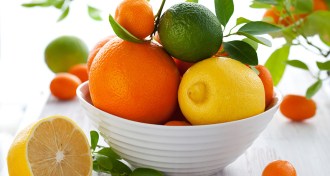 Plants
PlantsFrom lemons to kumquats, roots of citrus variety dug up
Citrus fruits’ lineage is traced through chloroplast DNA, revealing both maternal and paternal heritage.
-
 Health & Medicine
Health & MedicineGenes may influence placebo effect
Certain gene variants may predispose people to experience the placebo effect, which may have implications for clinical trials and personalized medicine.